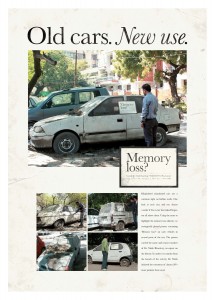Acerca del autor
Luis Maram
MBA, speaker internacional, Master en Inbound Marketing, especializado en Reputación corporativa. Estratega de contenidos; editor en jefe de este sitio enfocado a cómo crear contenidos que tu audiencia quiera ver, vivir y compartir. Consultas o conferencias de marketing.
Este sitio usa Akismet para reducir el spam. Aprende cómo se procesan los datos de tus comentarios.








Deja un comentario